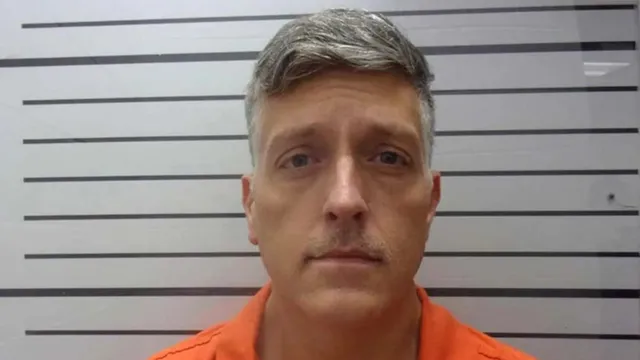
Funeral home owner sentenced for hiding nearly 200 bodies
2025-06-29 05:55- Jon Hallford defrauded families and the federal government, leading to a severe prison sentence.
- He stored 190 decomposed bodies and sent families fake ashes over several years.
- The emotional toll on affected families underscores the gravity of Hallford's actions.
Express your sentiment!
Insights
In Colorado, a funeral home owner named Jon Hallford was sentenced to 20 years in prison for his fraudulent activities, which included stashing nearly 190 decomposed bodies at his funeral home, Return to Nature. His sentencing occurred after he pleaded guilty to conspiracy to commit wire fraud, leading to the exploitation of grieving families and the swindling of nearly $900,000 in federal COVID-19 aid. The press coverage and courtroom statements revealed how Hallford, aiming to make a positive impact through his business, spiraled into extensive misconduct, ultimately causing severe emotional distress to numerous families who believed they were able to honor their deceased loved ones. Hallford's co-owner, Carie Hallford, also faces state charges related to corpse abuse for allegedly storage of the bodies between 2019 and 2023. Many grieving families were heartbroken to learn that the ashes they had received weren’t authentic, resulting in considerable emotional turmoil. The court described Hallford's case as extraordinary and stated that the severe nature and scale of his actions warranted a maximum sentence under federal law. Hallford's attorney recommended a 10-year sentence, but prosecutors argued that a longer term was justified due to the distress the actions caused to families. Derrick Johnson's emotional testimony highlighted the disturbing reality of the situation, as he described the agony of not knowing the fate of his deceased mother when she was cast aside with improper care. The emotional aftermath continues to unravel for families affected, with additional legal proceedings against Carie Hallford scheduled for upcoming months.
Contexts
The impact of funeral home fraud on grieving families can be profound and long-lasting. Grieving the loss of a loved one is already an emotionally challenging experience, and instances of fraud can exacerbate the pain and financial burden during this vulnerable time. Funeral homes have a responsibility to provide truthful and dignified services, yet some exploit the grief of families by overcharging for services, pressuring families into unnecessary purchases, or providing substandard services. This betrayal not only strains the financial resources of families but also adds an emotional layer of distress to their grieving process, potentially leading to feelings of guilt, anger, and helplessness in the wake of their loss. Victims of funeral home fraud often face a complex aftermath, as they navigate both emotional recovery and financial repercussions. The costs associated with fraudulent practices can vary widely, from unacknowledged fees to exorbitant charges for basic services. Families frequently discover that deceptive pricing practices could have been avoided with better transparency and clearer communication from funeral homes. In many cases, the financial ramifications can hinder the ability of families to honor their loved ones appropriately, thus affecting their overall healing process and the way they commemorate their deceased. Additionally, the prevalence of fraudulent activity within the funeral industry can contribute to a broader mistrust of service providers among consumers. Given that many families already feel overwhelmed by grief, the prospect of falling victim to fraud can discourage them from seeking necessary funeral services altogether. This not only affects individual families but can also lead to increased scrutiny and regulation of the funeral industry, potentially resulting in stricter licensing requirements and oversight measures to protect consumers in the future. Such changes aim to promote ethical practices and create a safer environment for bereaved families attempting to navigate their options amid profound personal loss. As awareness about funeral home fraud grows, it becomes increasingly vital for families to educate themselves on their rights and options when planning a funeral. Advocacy groups and consumer protection agencies provide resources to inform families of the warning signs of fraud, as well as their rights to fair and just treatment during the funeral planning process. By being proactive and seeking information, families can safeguard against potential fraud while ensuring that they honor their loved ones in a dignified manner, ultimately allowing for a more respectful grieving process.